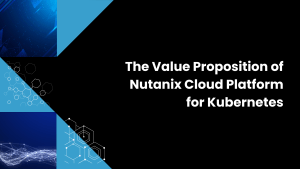The core Kubernetes codebase has begun to stabilize, a trend made apparent from the fact that there was only one new open-source code contribution announced so far at this week’s KubeCon + CloudNativeCon 2018 in Seattle.
The main action in the Kubernetes market has shifted to commercial solutions. At KubeCon this week, there was a wide range of new product announcements and enhancements to existing Kubernetes offerings. These new solution capabilities deliver value into enterprises’ existing cloud-native computing environments and also provide tools for extending Kubernetes into new clouds, to the edge and into serverless deployments.
As expected, many of this week’s announcements focused on offerings that address enterprise requirements for Kubernetes in fully managed services, hybrid clouds, storage orchestation, cluster security, container monitoring and application programming interface management. And, considering how embedded Kubernetes has become in many enterprise application environments, it was no surprise that many KubeCon announcements had a clear DevOps focus, such as:
- Cloud 66 launched new automation, configuration, security and workflow features for the DevOps toolchain on in multicloud Kubernetes-backed PaaS, as well as integration with Helm Charts in its development tooling.
- Atomist announced that its tooling can now automate delivery of containerized applications to Kubernetes in local mode on a single-node laptop-based cluster using minikube as easily as to a fully managed production cluster running in a Kubernetes cloud service, as well as adding support for GitLab so that developers can trigger goals from Git events emitted by that environment.
- Arrikto announced new products that enable better collaboration and faster iteration for global teams building and running containerized apps on Kubernetes, with support for versioning, packaging, distribution, protection and sharing of code, libraries and data across teams and locations.
- HyScale launched what it calls its “frictionless app delivery platform,” a self-service DevOps pipeline that automates onboarding, containerization, configuration, tracking and delivery of microservices into Kubernetes clusters.
Into the mesh and the edge
Expanding the deployment range for Kubernetes into mesh and edge environments was also a prominent theme in several high-profile KubeCon announcements:
- Google announced an update to Google Kubernetes Engine that brings integrated support for the open-source Istio service mesh, which integrates, secures and manages traffic routing among distributed cloud microservices, over orchestration services such as Kubernetes.
- A10 Networks announced its multicloud secure service mesh solution for applications deployed in Kubernetes, incorporating integrated security, analytics, auto-scaling, policy management and elastic load balancing for traffic to and among microservices.
- Containous announced the latest version of its cloud-native edge router which automated traffic management over both Kubernetes and Docker Swarm container orchestration environments.
- Datawire announced an enhancement to its cloud-native API gateway to support rate limiting, authentication and zero-downtime reconfiguration when deploying containerized microservices on Kubernetes across decentralized edge deployments.
But the most important announcements at KubeCon were those that focus on integrating the Kubernetes container orchestration fabric with the new world of serverless computing. That’s because enterprises are beginning to require the ability to build, deploy, and manage containerized microservices that can be programmed using serverless abstractions, sometimes known as the “function-as-a-service” paradigm.
Kubernetes meets serverless
Throughout 2018, the principal industry announcements around the integration of Kubernetes and serverless have been focused on the open-source Knative project. Developed by Google in collaboration with Pivotal, IBM, Red Hat and SAP, Knative, now in version 0.2, is a Kubernetes-based platform for driving DevOps workflows around the unified development of serverless and containerized apps for deployment across heterogeneous public and private cloud platforms.
In July, Google made Knative available to users via a serverless add-on to its Google Kubernetes Engine. It enables developers to build, serve and manage container-based serverless applications that can be easily moved between cloud providers. However, Knative is still incomplete, in the sense that it doesn’t interact with Azure functions or AWS Lambda functions.
At this week’s KubeCon, several of Knative’s primary developers announced that they have implemented it in their cloud-native solutions:
- SAP is making Knative available in its SAP Cloud Platform and as part of the software company’s Kyma project.
- IBM is enabling enterprises to install Knative in their deployments IBM Cloud Kubernetes Service, making the technology available in GitHub.
- Red Hat (in the process of being acquired by IBM) is adding support for Knative in its OpenShift Kubernetes platform to help customers build and run serverless applications and integrate with the company’s OpenShift Server Mesh based on the Istio and Kiali projects. It will also use Strimzi, which is designed to make it easier to run Apache Kafka on OpenShift or Kubernetes, through Red Hat AMQ Streams for eventing and Camel-K, an integration framework based on Apache Camel through which multiple event sources can be used to trigger serverless applications. Knative in OpenShift will be available in a development preview early next year.
In addition, GitLab and TriggerMesh announced GitLab Serverless which enable enterprises to run serverless workloads on any cloud using Knative. The solution enables businesses to deploy serverless functions and applications on any cloud or infrastructure straight from the GitLab UI using open source Knative. It will be be available in GitLab 11.6, scheduled for release on Dec. 22.
Another serverless announcement at KubeCon, albeit without a Knative tie-in, came from Oracle. The company announced the Oracle Cloud Native Framework. Among that framework’s many features is the new Oracle Functions, a fully managed serverless cloud service based on the Oracle-developed open-source Fn Project. Oracle Functions are Docker-based multitenant serverless functions that can be orchestrated through Oracle Container Engine for Kubernetes on Oracle Cloud Infrastructure. They allow users to only pay when a function is invoked, but pay nothing when the code is not running.
Other industry efforts are bringing serverless, containers, and even virtualization into closer alignment in cloud-native computing. Just a few weeks ago at re:Invent 2018, Amazon Web Services announced Firecracker, a lightweight, open-source virtual machine monitor that enables creation and management of secure multitenant containers and AWS Lambda functions in serverless clouds.
This week’s KubeCon announcements around Knative and similar initiatives are clear milestones on the path to hybrid serverless multiclouds. As I noted recently in this Wikibon post, we expect that Knative, in conjunction with other projects such as Virtual Kubelets, will catalyze development of more varied and sophisticated hybridizations of serverless and containerized Kubernetes-orchestrated microservices.
Check out what Kelsey Hightower, staff developer advocate for Google Cloud Platform, had to say on theCUBE at KubeCon on what it means to take a Kubernetes-orchestrated container and put it into a serverless function:


